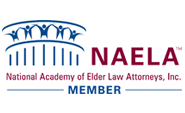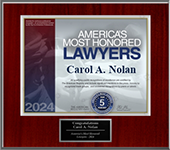Special Needs Trusts
There are two types of special needs trusts: (1) a special needs trust that is funded with the disabled person's own assets—OBRA '93 Payback Trust; and (2) a special needs trust funded with assets from someone other than the disabled person, such as a parent or other family member—Third Party Special Needs Trust.
THIRD PARTY SPECIAL NEEDS TRUST
A special needs trust is a discretionary trust set up for the benefit of an individual who has a disability that substantially impairs that individual's ability to provide for his or her own care. The purpose of this trust is to maximize private resources available to a person with special needs to provide for his or her own care, and also to insure that the disabled person remains qualified, or is able to qualify in the future, for federal, state, and local government benefits. Currently, in Illinois as many other states, such trusts are exempt from consideration as an available resource to the disabled person and are insulated from reimbursement claims by the state when the disabled person dies.
This trust is often implemented by parents of a disabled minor or adult child who do not want that child to inherit a substantial amount of money that would disqualify them from government benefits. Funds in the trust are used to supplement the governmental benefits that their disabled child receives. Upon the death of the disabled child, the trust funds may be distributed to other beneficiaries.
The trustee of a special needs trust has sole discretion to expend as much of the income or principal of the trust as appropriate for the benefit of the individual's comforts and needs not provided for by government benefits. No trust income may be used for the ordinary care, comfort, and welfare of the beneficiary so long as there are sufficient monies available for that purpose from federal, state, and local governmental agencies. Trust assets are meant to supplement and not substitute. The trustee may not distribute cash to the individual at any time, and the individual may not demand any distribution of funds.
OBRA '93 PAYBACK TRUSTS
There are two types of OBRA '93 Payback trusts:
OBRA '93 Disability Pay Back Trust (d4a)
This an irrevocable trust containing the assets of a person under age 65 who is disabled as determined by the Social Security Administration. The trust provides that any amount remaining in the trust will be paid to the Department of Public Aid upon the death of the trust beneficiary. The trust remains exempt after the beneficiary reaches age 65, but any additions to the trust after the person reaches age 65 are treated as transfers of assets.
OBRA '93 Pooled Trust (d4c)
This is an irrevocable trust containing assets of a person of any age who is disabled under the same criteria as a Disability Pay Back Trust. This trust is created and managed by a nonprofit organization; a separate account is maintained for each person, but for management purposes, all of the trust's funds will be pooled. An account is set up for the client's benefit by the client (or agent under power of attorney), parent, grandparent, legal guardian, or a court. The state is paid back upon the death of the client, and the remainder may go to family.
Both types of OBRA trusts allow for the funds to supplement any state and federal benefits that the client is receiving. No money shall be used for ordinary care, comfort, and health, including basic food, clothing, and shelter, so long as there are sufficient monies available for those purposes from federal, state, and local governmental programs, or from private agencies, or a combination thereof.
The trustee of these trusts may not distribute assets from the trust to the client at any time, and neither the client nor the guardian of his person or estate, if any, shall have any right or power to demand distribution from the trust at any time. The trustee must exercise vigilance in discerning special needs, comforts, or luxuries suitable for the client which are not provided by local, state, or federal government agencies, or from private agencies, or any combination thereof, and for the purpose of satisfying such special needs, luxuries, or comforts, the trustee shall use so much of the income and principal of the trust as it in its sole discretion believes will enhance the quality of the client's life without disqualifying the client for any state, federal, or local benefits or programs then providing for the client's needs.













 630-668-6600
630-668-6600

